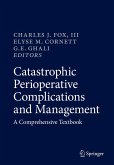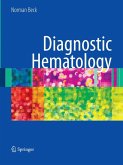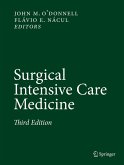Perioperative Medicine brings together the principles and practice of all phases of perioperative care - preoperative, intraoperative, and postoperative. This book is a concise, yet comprehensive, review of perioperative medicine written and edited by leading experts in internal medicine, hospital medicine, and anesthesiology. It reviews the practical aspects of perioperative patient care, primarily from a medical view, and uses a bulleted format that condenses and highlights the key concepts for easy reference. It covers perioperative care from risk assessment to postoperative follow-up, including the role of the consultant, preoperative testing and risk assessment, perioperative medication management, and prophylactic measures, surgery-specific risks, and postoperative complications.
The editor has over 25 years of experience in perioperative medical consultation at a large, academic medical center, and has used his expertise to focus on information useful to practicing clinicians. The target audience is generalists as well as specialists who are involved in perioperative patient care, including internists, hospitalists, anesthesiologists, surgeons, physicians' assistants, nurse anesthetists, and residents in training.
Dieser Download kann aus rechtlichen Gründen nur mit Rechnungsadresse in A, B, BG, CY, CZ, D, DK, EW, E, FIN, F, GR, HR, H, IRL, I, LT, L, LR, M, NL, PL, P, R, S, SLO, SK ausgeliefert werden.
"This review of perioperative care stresses how to best manage the medical issues of patients based on the available evidence to minimize surgical risks. The bulleted format makes it very easy to glean important information. ... is primarily directed at those who take care of these patients either before or after surgery. Anyone involved in patient care -- surgeons, internists, or anesthesiologists -- will find it helpful. ... This well-done book covers all the important topics with just the right amount of detail." (Tariq M. Malik, Doody's Review Service, December, 2011)









